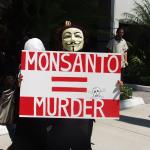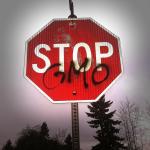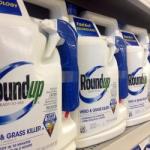My esteemed colleague Cameron English has gotten into it (again) with the esteemed journalist BS artist Carey Gillam, who sees herself as the investigative savior of a poisoned world.
glyphosate
During a recent trip to Home Depot, I found myself standing next to another customer in the lawn and garden department. He was attentively looking over a container of the weed killer Roundup. "Isn't this the one that causes cancer?" he asked.
The anti-GMO movement has lost much of its cultural relevance in recent years and it now appears that the political debate surrounding crop biotechnol
Misinformation is rampant on social media.
Testing for chemical carcinogenicity using animals is timely, costly, and for some, morally wrong.
If you want to show that any chemical is dangerous, here's a three-step process that will consistently yield the desired result:
“This Roundup ingredient might cause cancer—but the EPA won’t ban it,” Popular Science told its readers in a terribly misleading January 13 story about the weedkiller glyphos
If you're a regular ACSH reader, you've met “Crazy Joe Mercola,” as my colleague Dr. Josh Bloom fondly refers to him.
Environmental activist groups and trial lawyers have launched a new campaign in their legal effort to restrict access to synthetic pesticides.
If you search for “glyphosate in food,” you'll run headfirst into an endless list of copycat stories, all warning about the dangers of weedkiller-tainted cereal, bread, crackers, baby food, chips, eggs, meat— and basically any other food you can t












